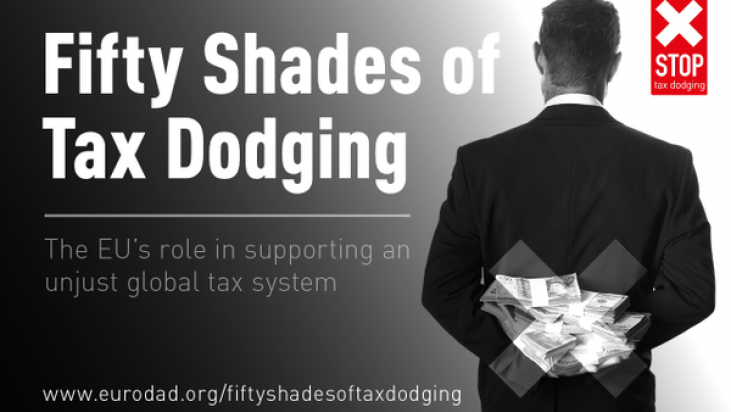A large number of the scandals that emerged over the past year have strong links to the EU and its Member States. Many eyes have therefore turned to the EU leaders, who claim that the problem is being solved and the public need not worry. But what is really going on? What is the role of the EU in the unjust global tax system, and are EU leaders really solving the problem?
The report Fifty Shades of Tax Dodging: the EU’s role in supporting an unjust global tax system– the third in a series of reports coordinated by Eurodad– scrutinises the role of the EU in the global tax crisis, analyses developments and suggests concrete solutions. It is written by civil society organisations (CSOs) in 14 countries across the EU. Experts in each CSO have examined their national governments’ commitments and actions in terms of combating tax dodging and ensuring transparency.
Overall, the report finds that:
- Although tweaks have been made and some loopholes have been closed, the complex and dysfunctional EU system of corporate tax rulings, treaties, letterbox companies and special corporate tax regimes still remains in place. The EU tax system still allows a wide range of options for tax dodging by multinational corporations.
- On the question of what multinational corporations pay in taxes and where they do business, EU citizens, parliamentarians and journalists are still left in the dark, as are developing countries. On a more positive note, some light is now being shed on the question of who actually owns the companies operating in our societies, as more and more countries introduce public or partially public registers of beneficial owners. Unfortunately, this positive development is being somewhat challenged by the emergence of new types of mechanisms to conceal ownership, such as new types of trusts.
- Leaked information has become the key source of public information about tax dodging by multinational corporations. But it comes at a high price for the people involved, as whistleblowers and even a journalist who revealed tax dodging by multinational corporations are now being prosecuted and could face years in prison.
- More than 100 developing countries still remain excluded from decision-making processes when global tax standards and rules are being decided.
You can download the report here.
